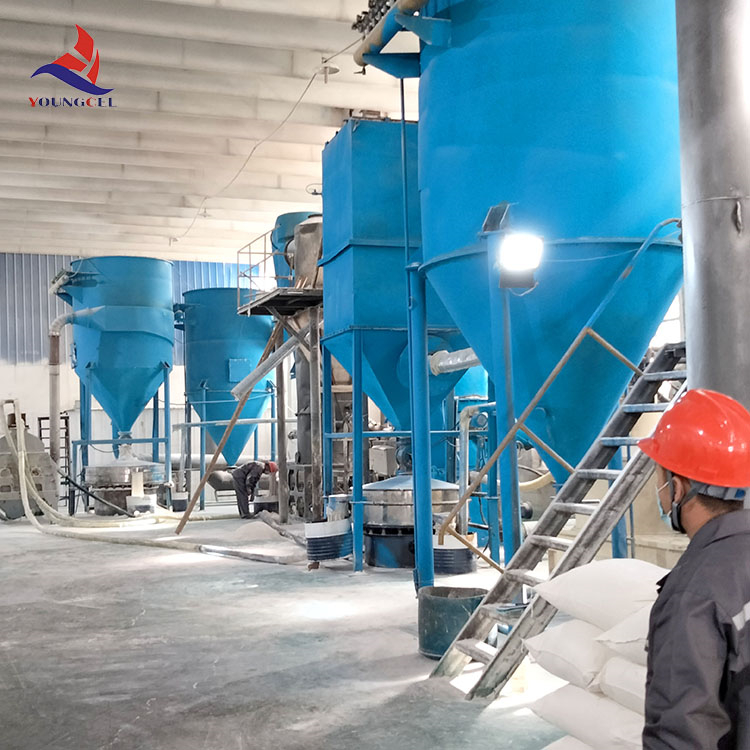Understanding Adhesive Methyl Cellulose Properties and Applications
Methyl cellulose is a unique cellulose derivative that has gained significant attention in both industrial and commercial applications. As an adhesive, it possesses a range of properties that make it suitable for various uses in construction, food, pharmaceuticals, and even personal care products.
What is Methyl Cellulose?
Methyl cellulose is derived from cellulose, a natural polymer found in the cell walls of plants. Through a process known as etherification, hydroxyl groups in the cellulose molecule are replaced with methyl groups. This modification results in a product that is soluble in cold water, unlike its parent cellulose, which is not soluble. Methyl cellulose appears as a white, odorless powder that can form a gel-like substance when mixed with water. Its unique physical and chemical properties set it apart from other adhesives.
Properties of Adhesive Methyl Cellulose
One of the remarkable features of adhesive methyl cellulose is its ability to form strong, flexible gels that have excellent water-retention capabilities. This property makes it an ideal choice for applications requiring moisture retention, such as in construction adhesives for tiles and wall coverings. The adhesive also exhibits a low viscosity, which allows for easy application and spreadability, ensuring that it can bond effectively to various surfaces.
Moreover, methyl cellulose is non-toxic, biodegradable, and derived from renewable resources, making it an environmentally friendly option compared to synthetic adhesives. Its safety profile allows for its use in food processing and packaging, where chemical leaching from substrates can be a concern.
adhesive methyl cellulose

Applications of Adhesive Methyl Cellulose
In the construction industry, adhesive methyl cellulose is commonly used as a thickening agent in cement-based products and tile adhesives. It improves the workability of mortars, allowing for better adhesion to substrates. The water-retention properties enhance the durability of the bonding, reducing the likelihood of failure over time.
In the realm of food technology, methyl cellulose is employed as a food additive, specifically as a thickener, emulsifier, and stabilizer. Its ability to form a gel at elevated temperatures makes it a popular ingredient in gluten-free baking, where it helps to create a texture similar to that found in gluten-containing products. Additionally, it aids in moisture retention in processed foods, extending shelf life and improving overall quality.
The pharmaceutical industry also utilizes adhesive methyl cellulose for various applications, including in drug formulation as a binder in tablets and as a thickener in topical ointments and creams. Its biocompatibility and non-irritant nature make it suitable for use in medical and pharmaceutical products.
In personal care, methyl cellulose is found in cosmetics and hair care products, where it serves as a thickening agent and stabilizer. Its versatile properties contribute to the texture and performance of gels, creams, and lotions.
Conclusion
Adhesive methyl cellulose stands out as a multifaceted compound with a myriad of applications across various industries. Its unique properties, including water-solubility, biodegradability, and non-toxicity, make it an attractive choice for manufacturers seeking effective and environmentally responsible alternatives to traditional adhesives. As industries continue to evolve towards sustainable practices, the role of methyl cellulose as a reliable adhesive will likely expand, paving the way for innovative applications in the future. Whether in construction, food, pharmaceuticals, or personal care, adhesive methyl cellulose is poised to remain a valuable material in diverse fields, showcasing the endless possibilities of natural polymers in modern applications.
-
Premium Detergent Grade HPMC Hydroxypropyl Methylcellulose: Superior Thickening & StabilityNewsAug.31,2025
-
HEC 100000 Hydroxyethylcellulose for Paint | Superior ThickeningNewsAug.30,2025
-
Wall Putty Rdp Powder Packaging DesignNewsAug.29,2025
-
Introduction to Hpmc Hydroxypropyl Methyl CellulosNewsAug.29,2025
-
Hpmc Industri Grade IntegrationNewsAug.29,2025
-
How to Choose the Right Construction AdhesiveNewsAug.29,2025




